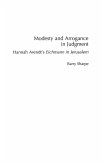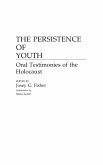Robbery can kill. Long before Auschwitz and Treblinka, tens of thousands of Jews died of hunger and disease in Warsaw after the Nazis seized their property and banned them from making a living. In Warsaw and throughout Nazi-occupied Europe, Holocaust plunder was not only a product of murder, Levin argues, but also a tool of murder. On the eve of the Holocaust, Warsaw was the home of the biggest Jewish community in Europe, some 350,000 Jews. They were a third of the city's total population and owned up to 40% of its land. The Nazis systematically seized their property even before the Ghetto was established and rendered the Jews penniless and unable to work. Thus tens of thousands starved to death or died of infectious diseases. As Levin makes clear, the plunder of Jewish property became not only a product of murder, but also a tool of murder. Because Hitler decided only in the Spring of 1941 on the mass murder of the Jews, the Warsaw case demonstrates-at least in retrospect-how the seizure of property killed even before the first gas chambers were built. After the Holocaust, the Communist regime in Poland took advantage of the fact that 90% of the country's Jews had been murdered to nationalize their private and communal property without paying any compensation. The vast majority of this property has never been returned to their lawful owners despite increasing international efforts to bring this about.
Hinweis: Dieser Artikel kann nur an eine deutsche Lieferadresse ausgeliefert werden.
Hinweis: Dieser Artikel kann nur an eine deutsche Lieferadresse ausgeliefert werden.








